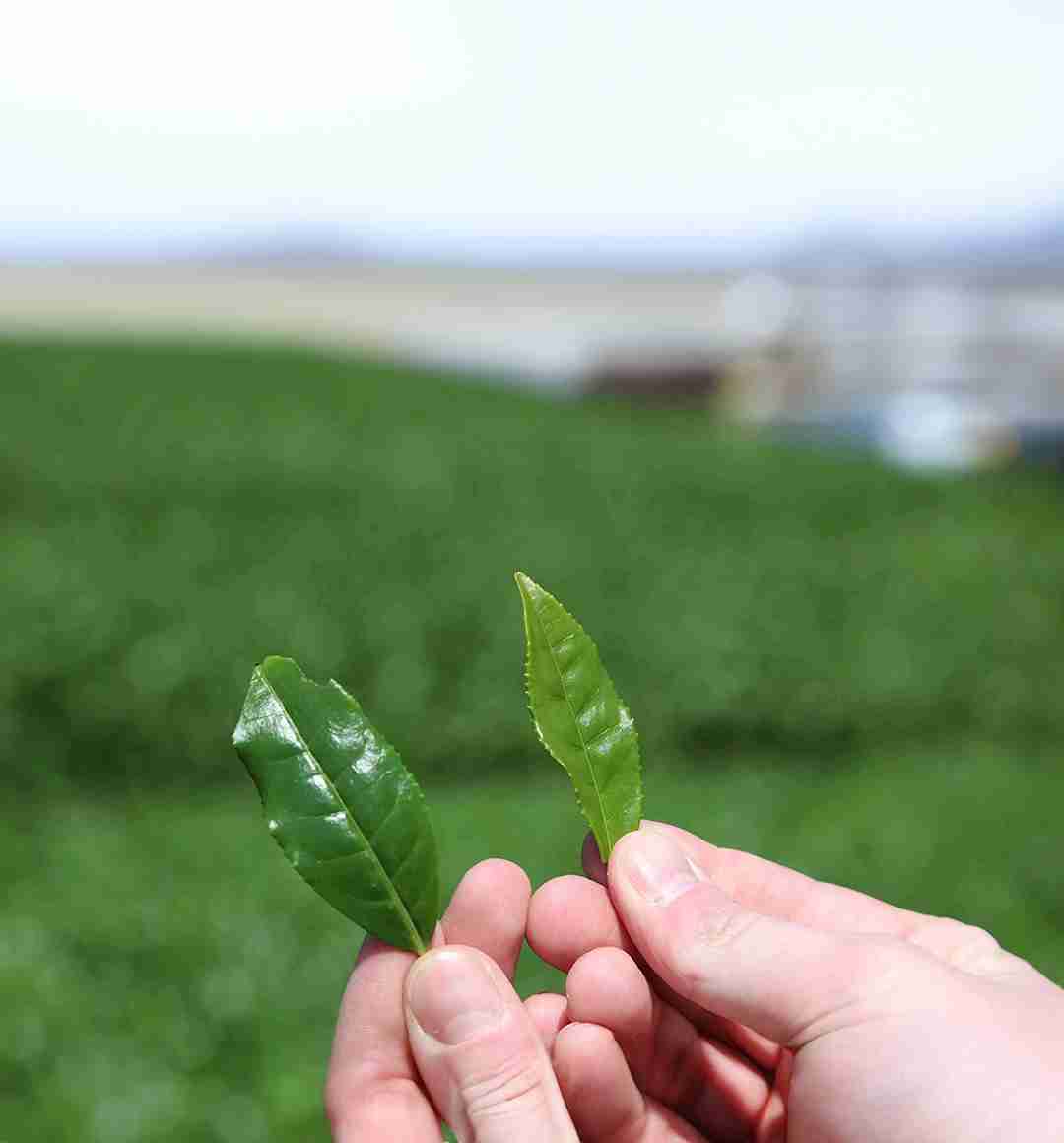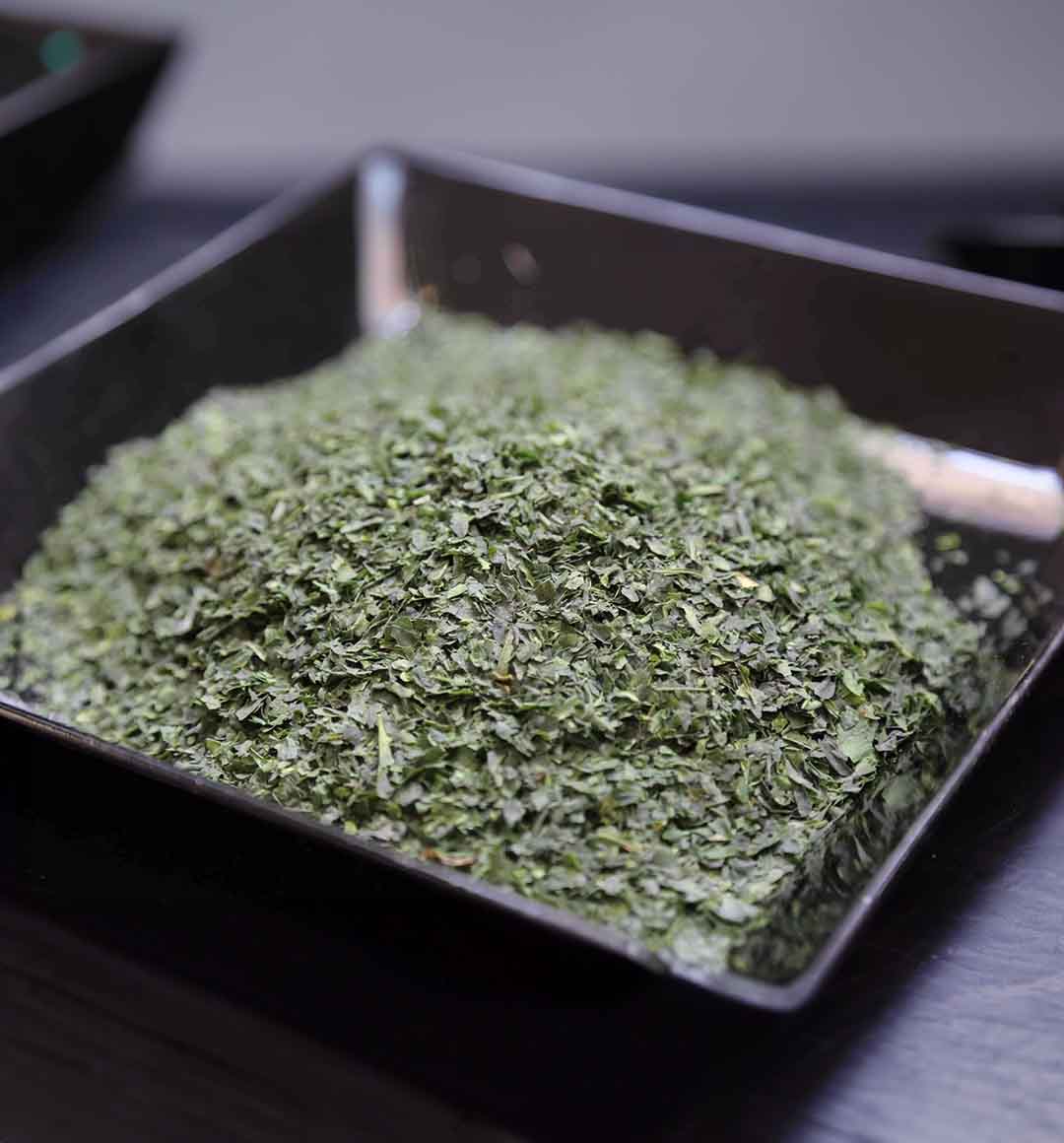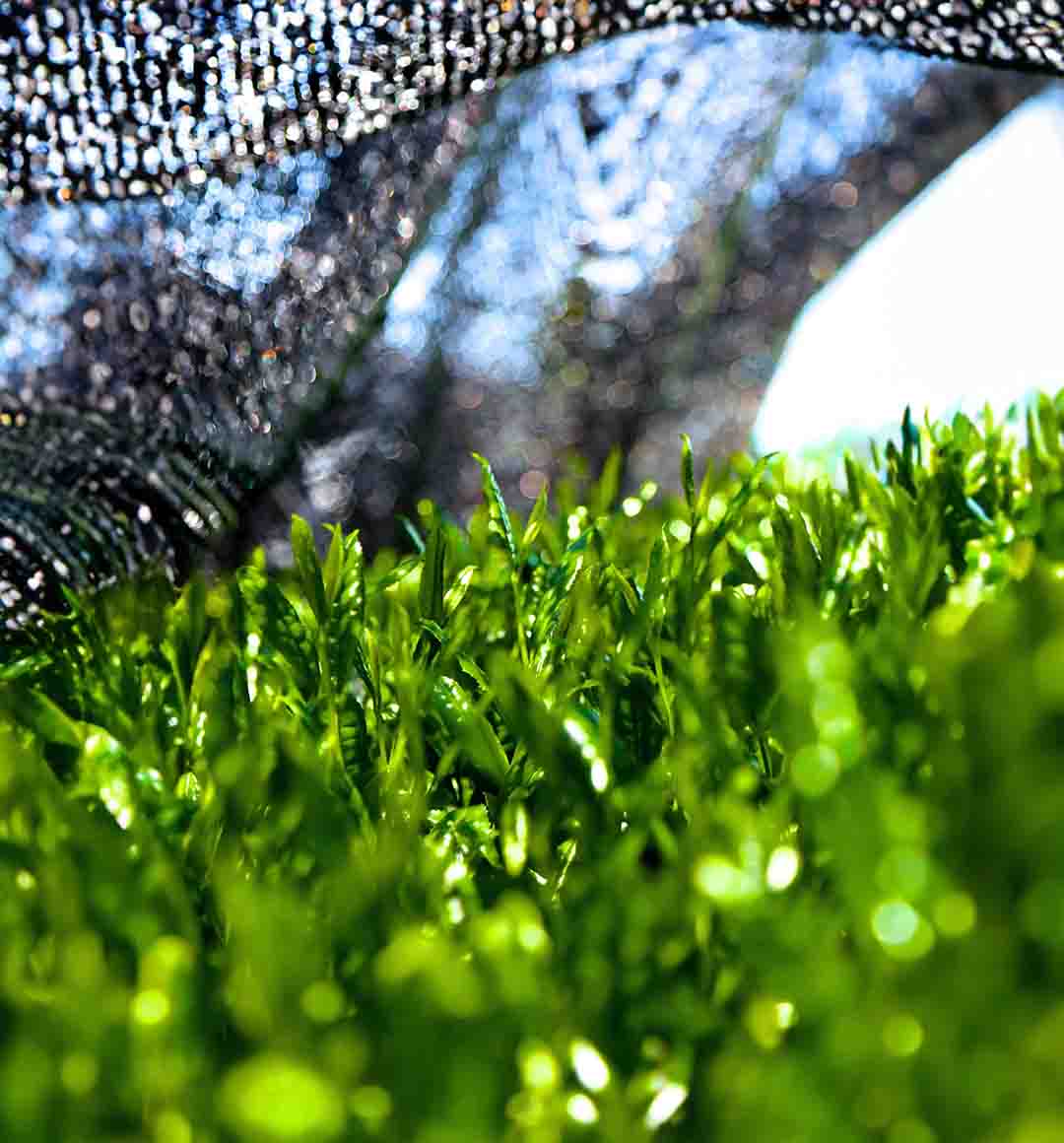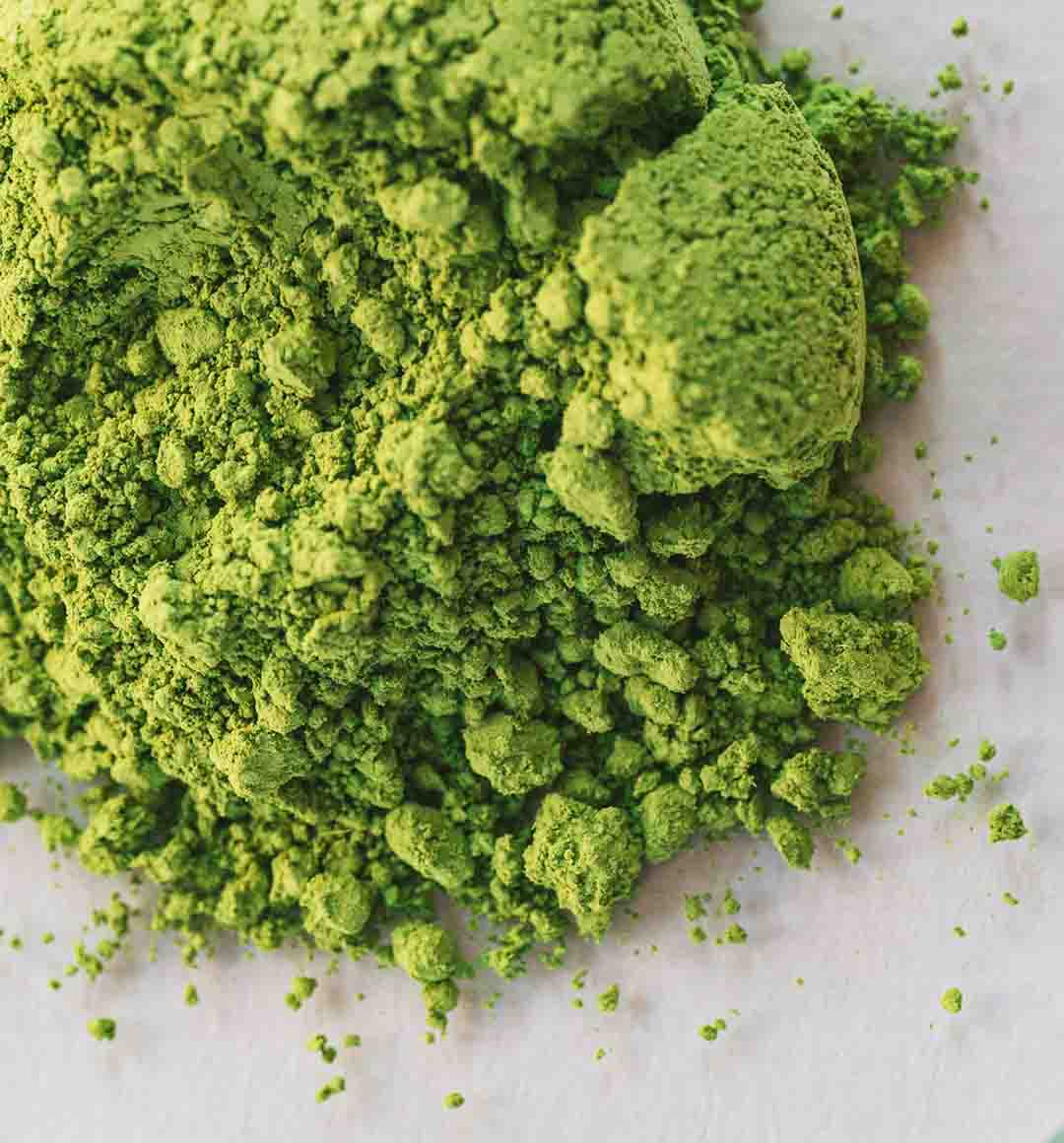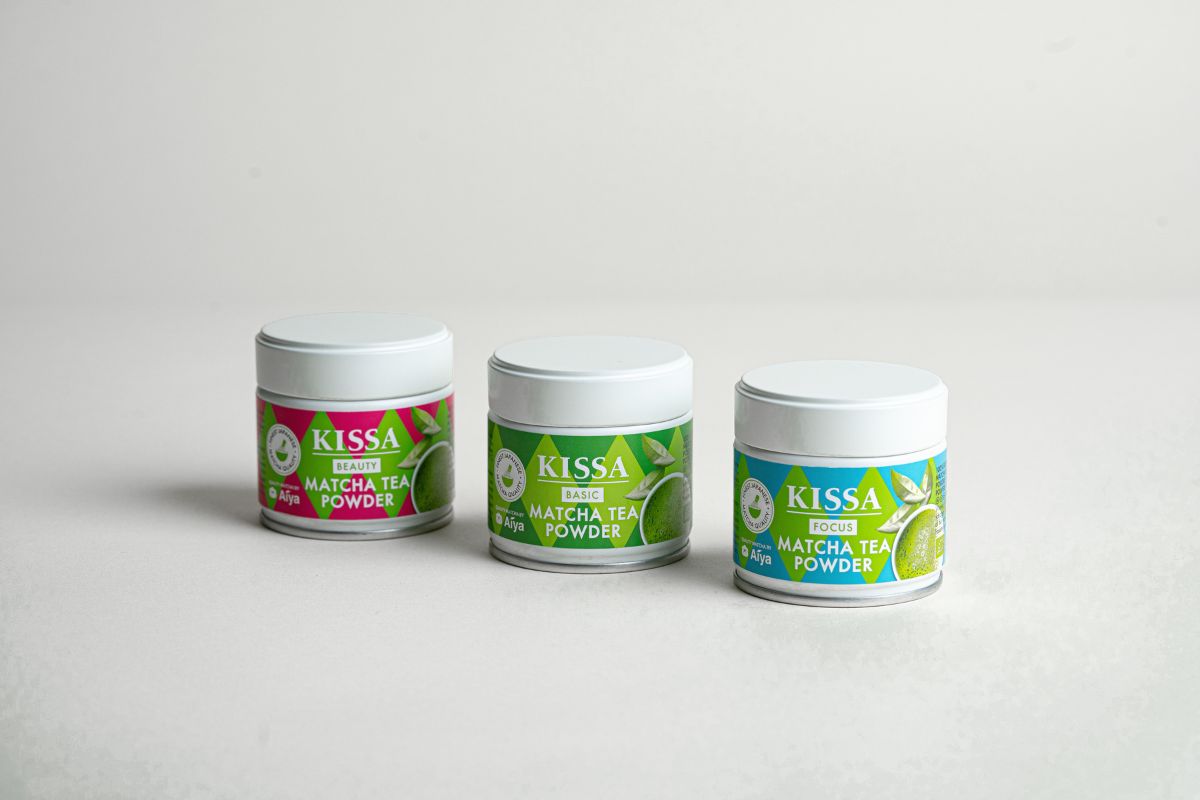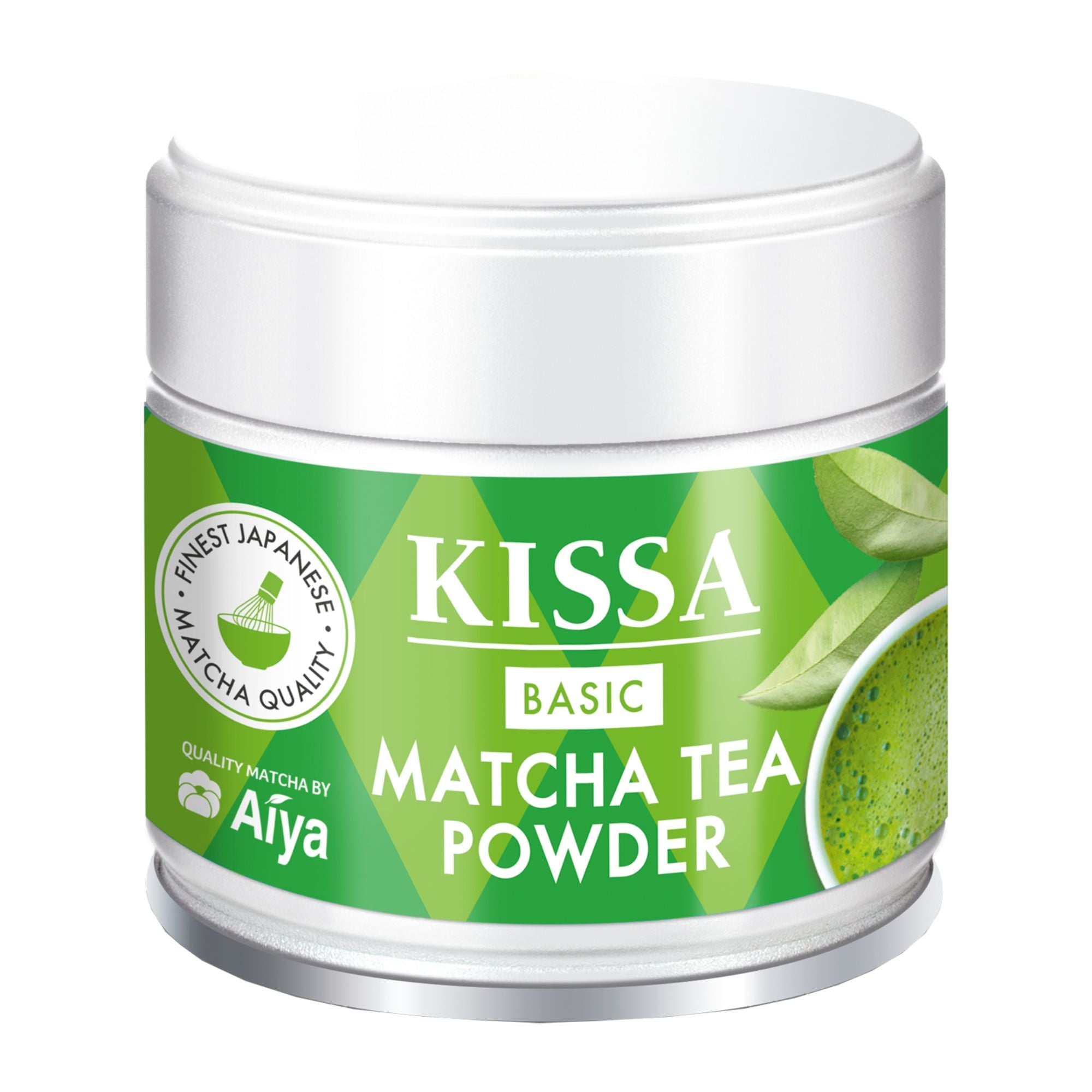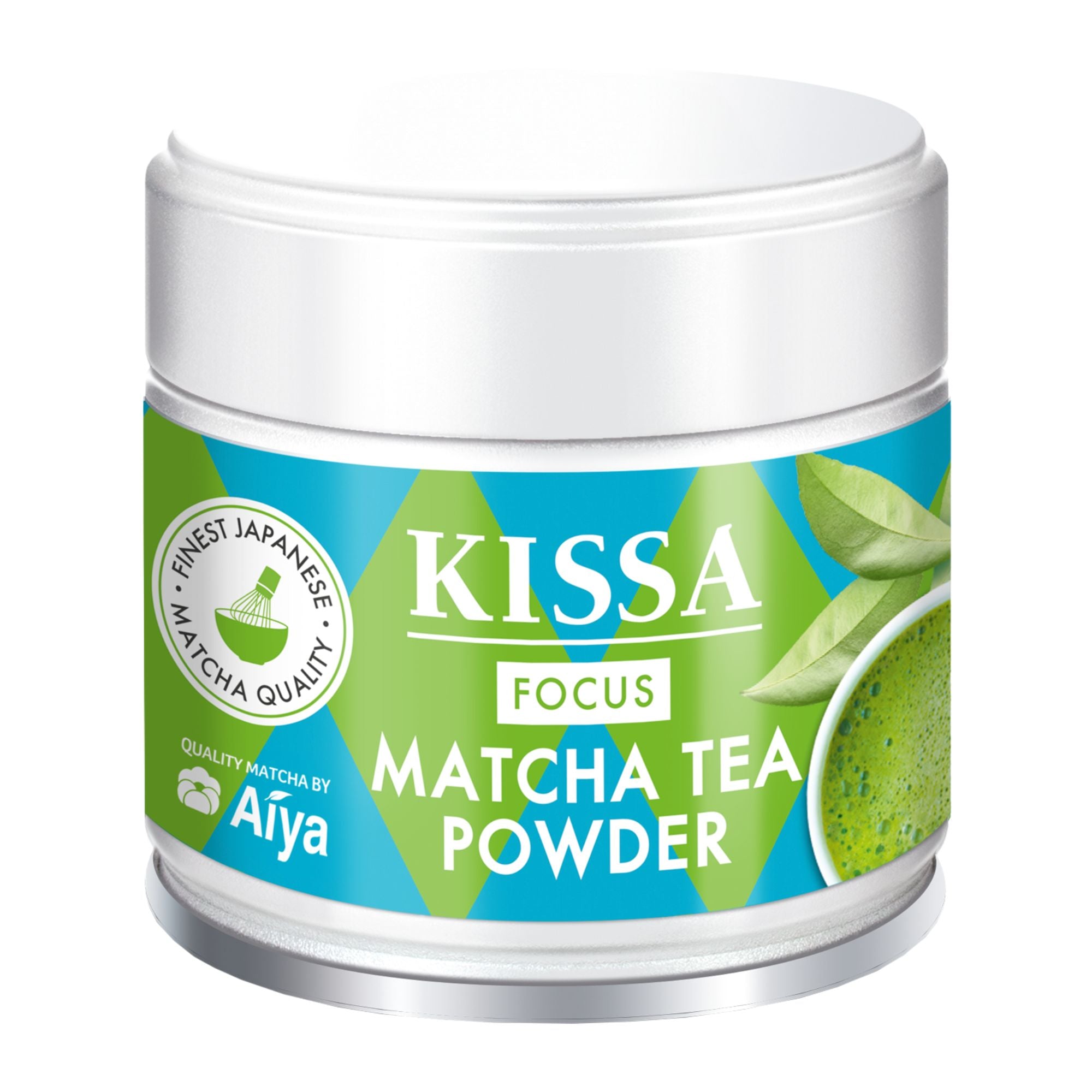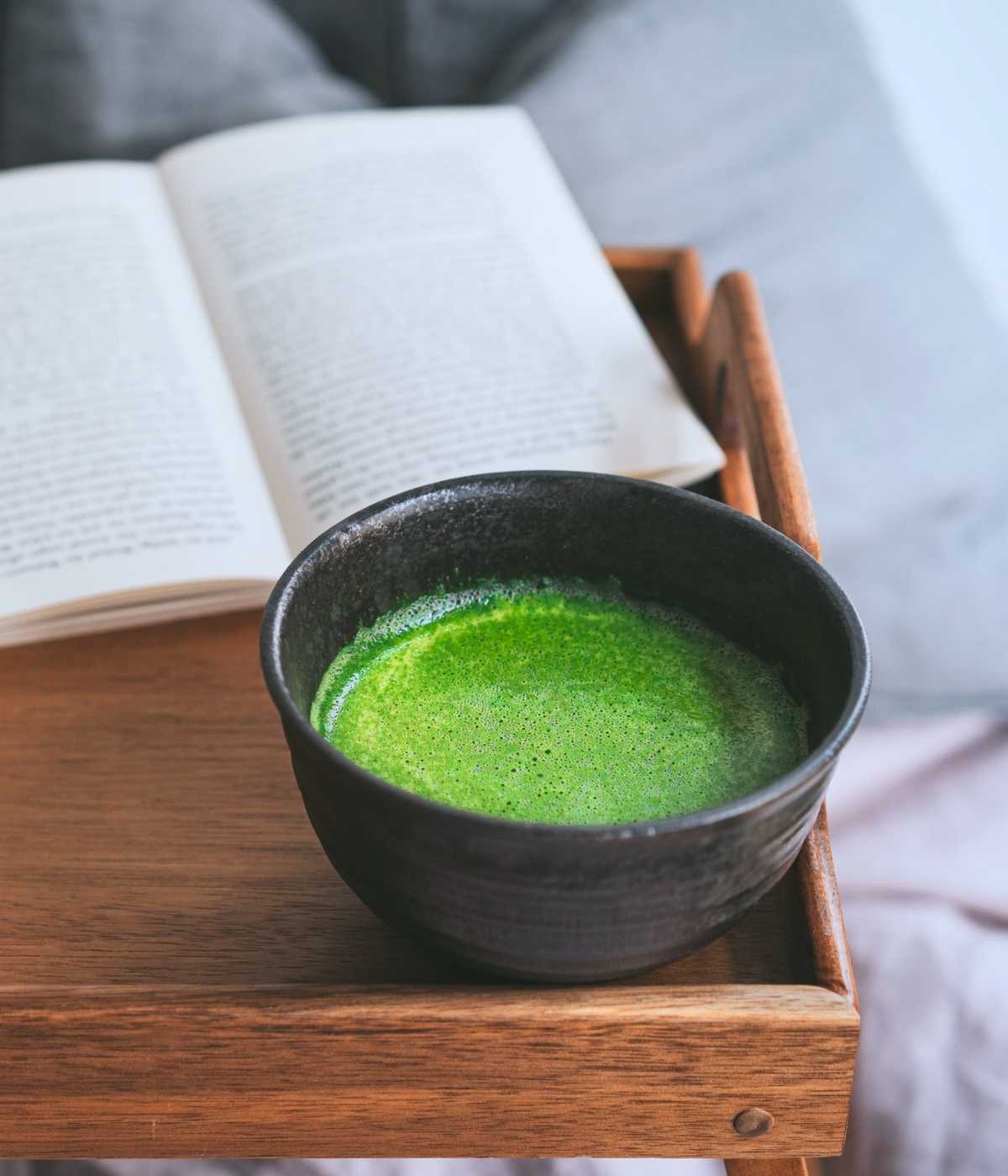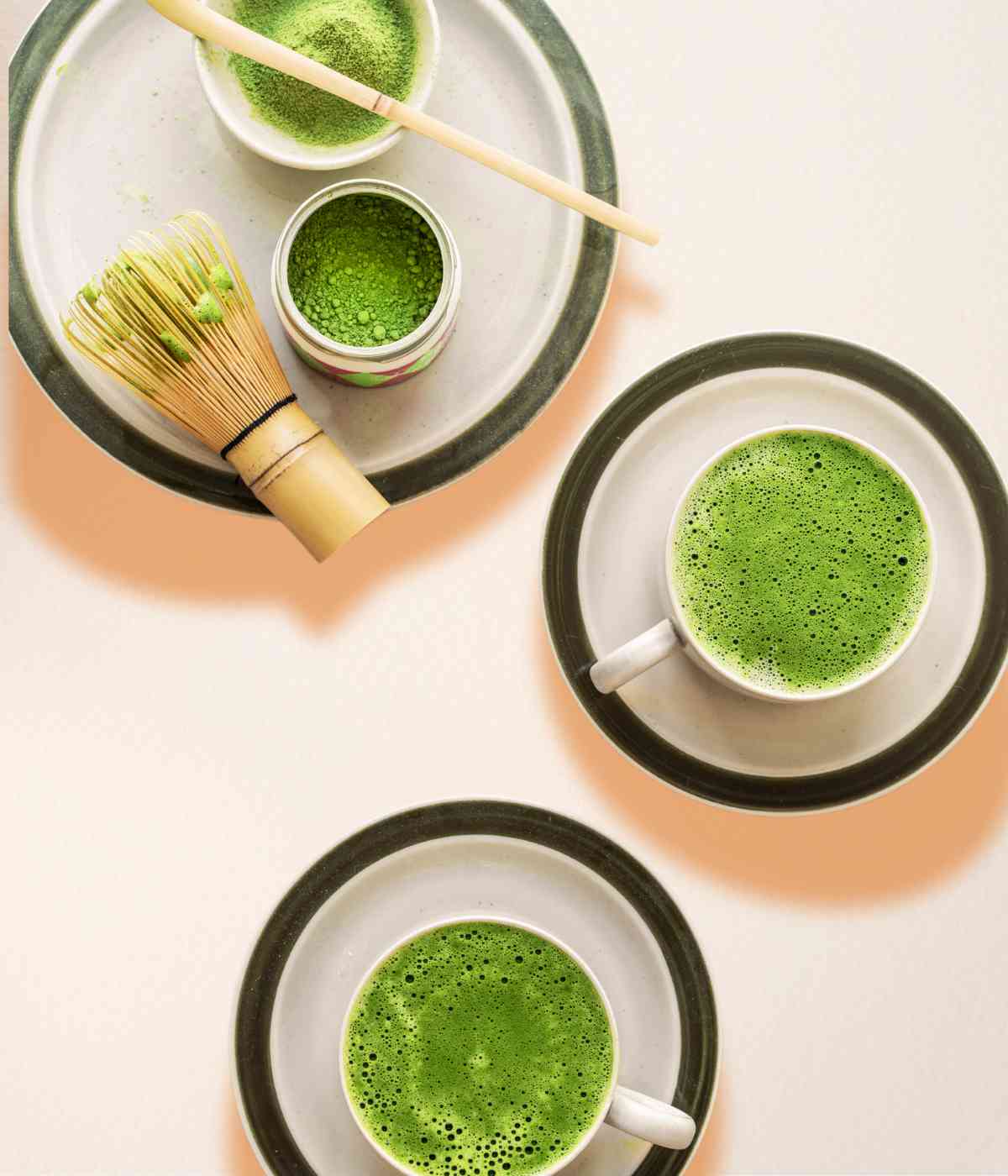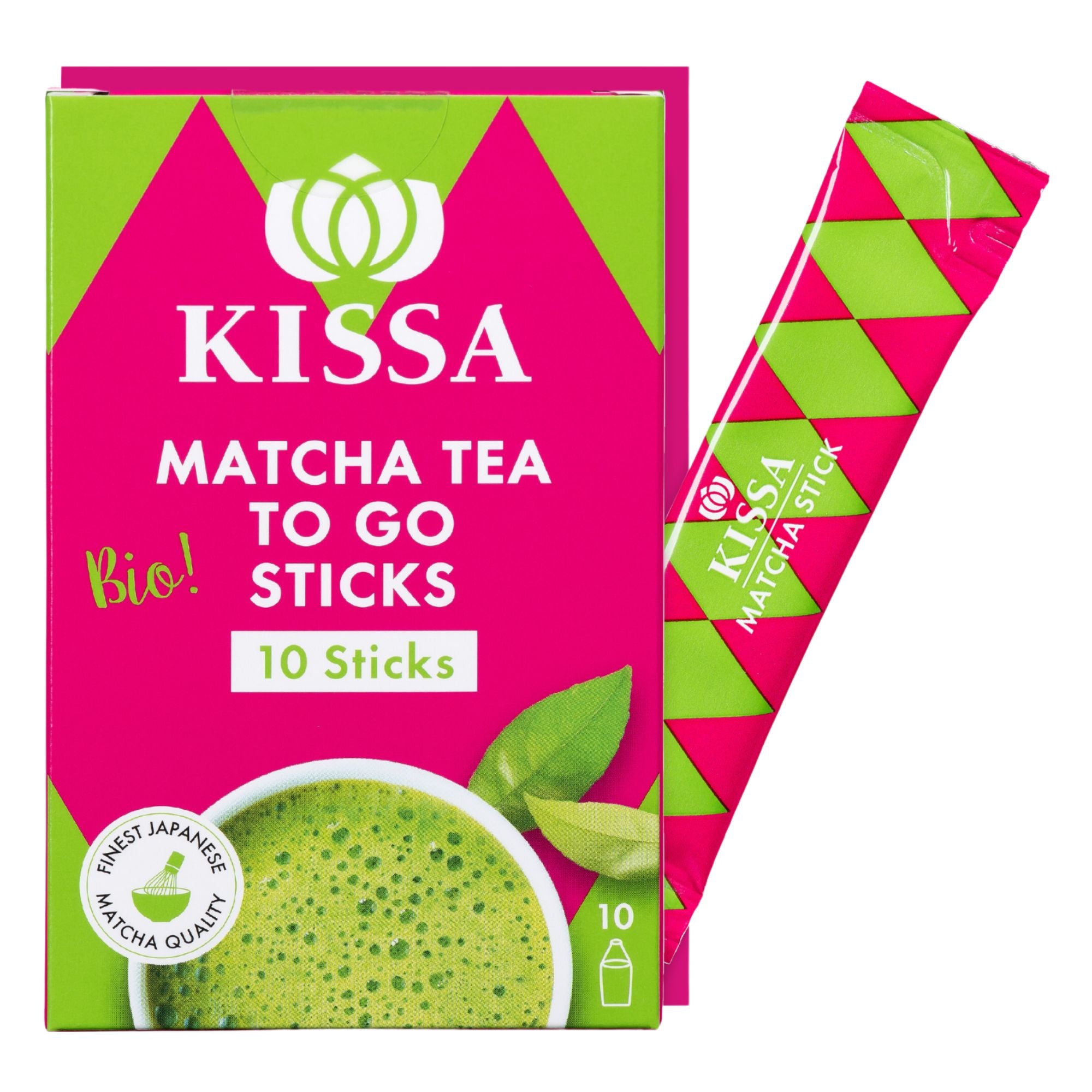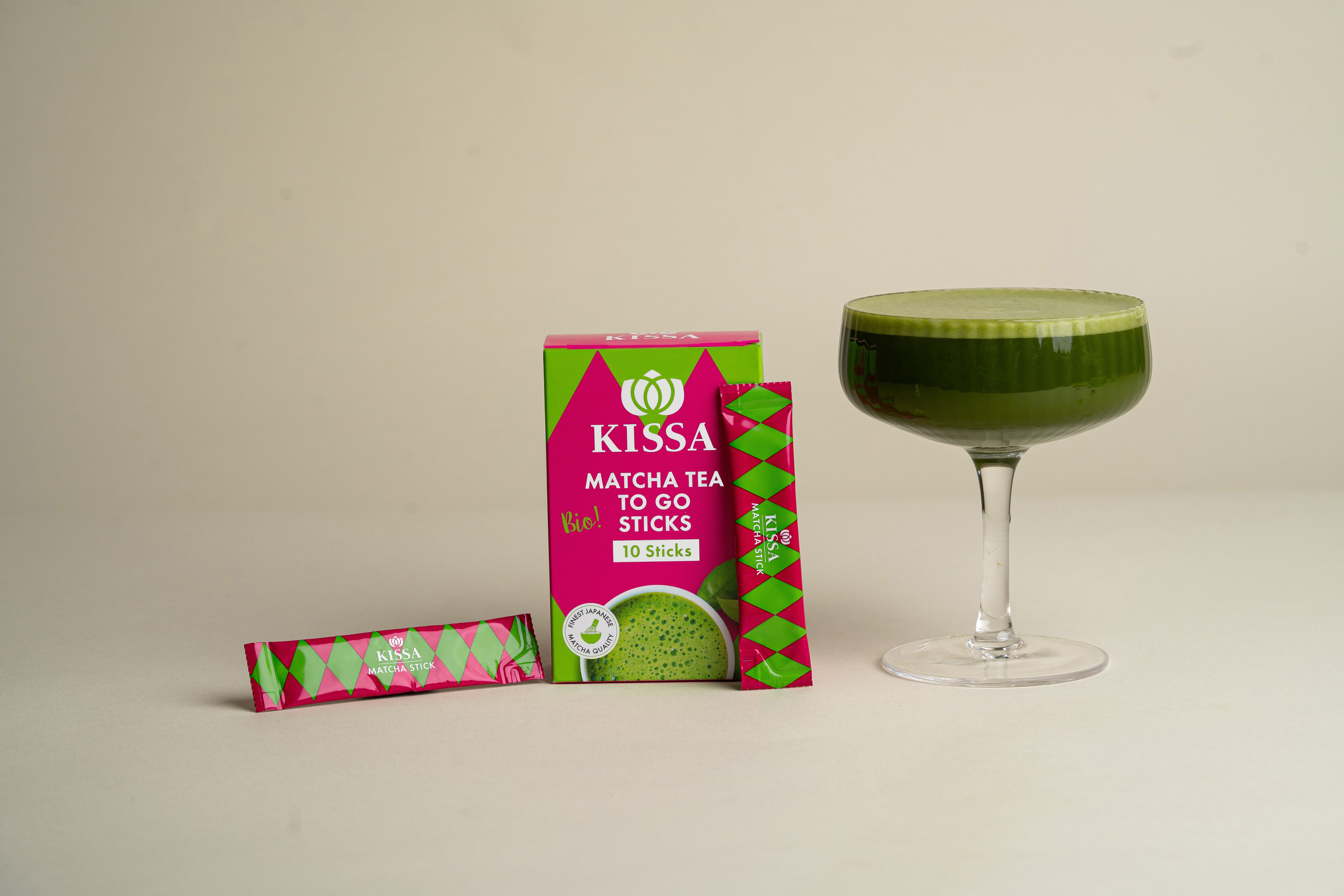MATCHA TEA BENEFITS
Matcha tea, a finely ground powdered tea made from the leaves of the Camellia sinensis plant, has been a staple of the Japanese tea ceremony for centuries. In recent years, Matcha has also gained popularity worldwide, largely due to its potential health benefits. Due to the special cultivation process in which the tea plants are shaded before harvest, Matcha contains a particularly high concentration of antioxidants and other bioactive compounds compared to conventional green tea.
The key difference between matcha and green tea is that when drinking matcha, the entire leaf is consumed in powder form , allowing for far greater nutrient absorption. Studies have shown that matcha is particularly rich in catechins, a group of polyphenols that possess powerful antioxidant and anti-inflammatory properties. These compounds are crucial to many of the health benefits attributed to matcha¹²³.
FINE POWDER, BIG BENEFITS
1. Rich in antioxidants and catechins
One of Matcha's most well-known properties is its high content of antioxidants, particularly catechins such as epigallocatechin gallate (EGCG). Antioxidants are compounds that help neutralize free radicals in the body. Free radicals are unstable molecules that can damage cells and contribute to the development of chronic diseases such as cancer, heart disease, and diabetes. According to a study on the chemical composition of Matcha, one serving of Matcha contains up to three times more catechins than regular green tea ³.
EGCG in particular has been shown to be extremely effective in protecting against cell damage. Not only does it help neutralize free radicals, but it can also reduce inflammatory processes in the body that often contribute to the development of chronic diseases². By consuming matcha, people can benefit from this antioxidant effect and thus reduce the risk of various diseases.
2. Matcha tea improves cognitive function and reduces stress
Matcha is not only known for its physical benefits, but also for its positive effects on mental health. Thanks to its high content of L-theanine, an amino acid found almost exclusively in tea plants, Matcha has a calming effect on the mind without causing drowsiness. Combined with caffeine, L-theanine promotes concentration and alertness levels. Studies show that regular consumption of Matcha can increase cognitive performance by improving attention and memory³.
One study found that subjects who consumed 4 grams of Matcha powder scored significantly better on cognitive tests than those who received a placebo². This unique combination of L-theanine and caffeine provides ideal support for people who want to keep a clear head without the jitters that often accompany caffeine consumption.
3. Matcha tea supports fat metabolism and promotes weight loss
Matcha has also been shown to be an effective weight loss aid, largely due to its high levels of caffeine and catechins, which together stimulate fat metabolism. Research shows that Matcha can increase fat burning during exercise by up to 35% ² ³.
Some studies suggest that regular consumption of Matcha combined with physical activity may lead to improved weight loss, particularly by increasing energy expenditure and improving resting fat burning³. In the long term, Matcha may also help regulate body weight by modulating gene expression associated with fat burning.
4. Cancer prevention through EGCG
One of the most impressive properties of Matcha is its cancer prevention potential. The epigallocatechin gallate (EGCG) contained in Matcha is a particularly powerful antioxidant that studies have shown can inhibit the growth of cancer cells and prevent them from spreading. EGCG blocks certain enzymes and proteins responsible for tumor growth and can even trigger cell death (apoptosis) in cancer cells² ³.
Studies have shown that EGCG is effective against a variety of cancers, including breast, prostate, lung and skin cancer². In particular, Matcha has shown promising results in the prevention of colon cancer through its anti-inflammatory and cell-protective properties. Although research is still in its early stages, there is evidence to suggest that regular consumption of Matcha could reduce the risk of cancer developing and spreading.
5. Matcha tea supports heart health
Matcha tea may also help improve heart health. Its high content of catechins and polyphenols supports the cardiovascular system by lowering cholesterol and blood pressure ³. Several studies have shown that green tea, especially Matcha, reduces the risk of cardiovascular disease through its anti-inflammatory and antioxidant properties ².
Catechins like EGCG prevent the oxidation of LDL cholesterol, which is one of the main causes of atherosclerosis – a narrowing of the arteries that can lead to heart attacks and strokes. In addition, Matcha improves blood circulation and strengthens blood vessels, which can have a positive effect on heart health in the long term³.


MATCHA LATTE MIX
Chemical composition of Matcha
Matcha is unique due to its high concentration of bioactive compounds, which are the result of the special cultivation and production process. Here is an overview of the main ingredients and their health benefits:
1. Catechins (especially EGCG)
Catechins are polyphenols with powerful antioxidant properties. Matcha contains four main catechins: epicatechin, epicatechin gallate, epigallocatechin and epigallocatechin gallate (EGCG), the latter being the most abundant and having the most powerful antioxidant activity³. These compounds play a key role in neutralizing free radicals and protecting cells from oxidative stress, which can cause diseases such as cancer and heart disease³.
2. Caffeine
Matcha contains more caffeine than regular green tea, which makes it a good source of energy. At the same time, the L-theanine contained in Matcha ensures that the caffeine effect is gentle and long-lasting, without nervousness or the typical "crash" after caffeine consumption². Caffeine also promotes fat metabolism and increases physical performance³.
3. L-Theanine
L-theanine is an amino acid found in high concentrations in Matcha. It has a calming effect while promoting concentration. Together with caffeine, L-theanine ensures that Matcha not only provides physical energy but also improves mental clarity and alertness ³. This combination makes Matcha a popular choice for people who want to keep a clear head without the stimulating effects of coffee.
4. Chlorophyll
The special shading process of the Matcha plants increases the chlorophyll content in the leaves. Chlorophyll is known for its detoxifying properties and helps the body eliminate harmful substances. It also gives Matcha its characteristic green color and fresh taste³.
5. Vitamins and minerals
Matcha also contains a variety of vitamins and minerals, including vitamin C, iron, potassium and calcium. Vitamin C enhances the antioxidant effect of catechins and supports the immune system³.

¹ Chacko, SM; Thambi, P.T.; Kuttan R.; Nishigaki, I. (2010): Beneficial effects of green tea: A literature review. In: Chacko et al. Chinese Medicine 2010, 5:13 http://www.cmjournal.org/content/5/1/13
² Roberts J.; Chung H. (2023): Matcha tea: What the current evidence says about its health benefits. In: The conversation (04.2023) https://theconversation.com/matcha-tea-what-the-current-evidence-says-about-its-health-benefits-202782
³ Kochman, J.; Jakubczyk, K.; Antoniewicz, J.; Mruk, H.; Janda, K. (2021): Health Benefits and Chemical Composition of Matcha Green Tea: A Review. Molecules 2021, 26, 85. https://dx.doi.org/10.3390/molecules26010085
